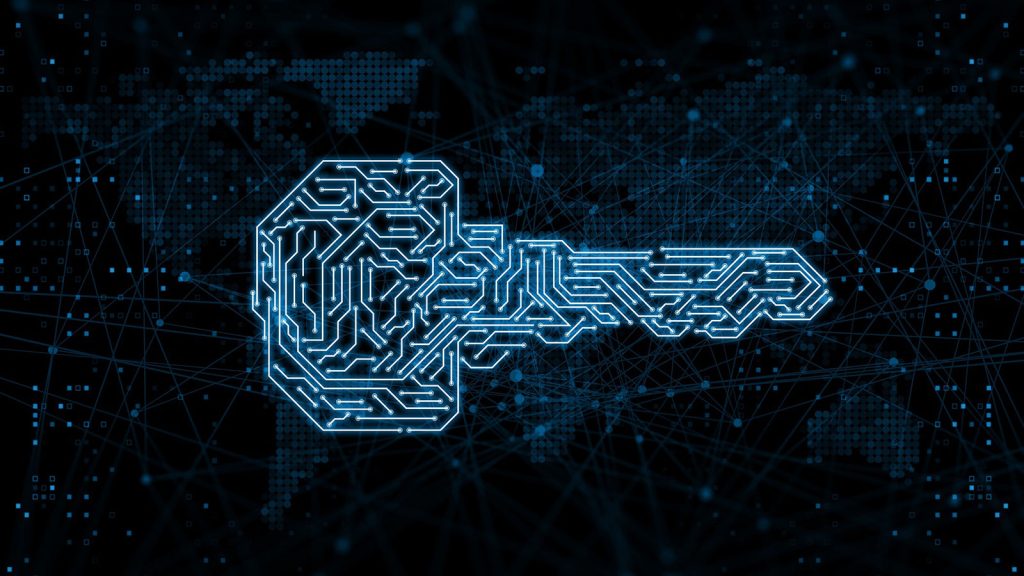Cryptography is important in the age of digital everything – from online banking to cryptocurrency – data privacy is more important than ever and with constant threats from hackers, surveillance, and data leaks, how do we keep our personal information safe?
The answer lies in cryptography – the science of secure communication. Whether you’re a casual internet user, a business owner, or a crypto investor, cryptography plays a vital role in protecting your digital life.
Here are five powerful ways cryptography keeps your data private in today’s connected world.

1. Encryption: Locking Your Data from Prying Eyes
At its core, cryptography uses encryption to protect data by converting it into unreadable code. Only someone with the correct key can decrypt and read the original content.
Types of Encryption:
- Symmetric encryption: One key to encrypt and decrypt (e.g., AES)
- Asymmetric encryption: Public key to encrypt, private key to decrypt (e.g., RSA, ECC)
Real-World Uses:
- Encrypted chats (WhatsApp, Signal)
- Securing files and emails (GPG, VeraCrypt)
- Hiding wallet info in cryptocurrency apps
Why it matters: Even if hackers intercept your data, they can’t read it without the key.
2. Hashing: Protecting Data Integrity
Hashing converts data into a fixed-length string (a hash), which acts like a digital fingerprint. Even a tiny change in the input drastically changes the hash.
How It Protects Privacy:
- Ensures data hasn’t been tampered with
- Hides original content (can’t be reversed like encryption)
Used in:
- Blockchain transactions (e.g., SHA-256 in Bitcoin)
- Password storage (hashed passwords instead of plain text)
- File verification and software integrity
Why it matters: It guarantees that data hasn’t been changed or forged – without revealing the actual content.
3. Digital Signatures: Verifying Identity Without Exposing Secrets
A digital signature proves that a message or transaction came from a specific person, without revealing sensitive information. It uses asymmetric cryptography to sign data with a private key and verify it with a public key.
Applications:
- Signing Bitcoin or Ethereum transactions
- Verifying signed emails or documents
- Ensuring software comes from a trusted source
Why it matters: You can prove your identity or approve actions without revealing passwords or sensitive details.
4. Zero-Knowledge Proofs: Proving Without Revealing
A Zero-Knowledge Proof (ZKP) is a cryptographic method where one party proves to another that something is true – without revealing what the information is.
Example:
You can prove you own a wallet or have enough funds for a transaction without showing your balance.
Real Uses:
- Privacy coins like Zcash
- Identity verification without sharing full ID
- Secure voting systems
Why it matters: ZKPs offer a way to enhance privacy in blockchain, finance, and identity systems without sacrificing trust or transparency.
5. Secure Key Exchange: Sharing Secrets Safely
Before data can be encrypted, users must share a key – but doing this over the internet can be risky. Cryptographic key exchange protocols (like Diffie-Hellman) allow two parties to securely share a secret key without ever revealing it during transmission.
Where It’s Used:
- HTTPS (secure websites)
- Encrypted messaging apps
- VPN connections
Why it matters: You can communicate privately even over insecure networks – without someone stealing your encryption key.
Final Thoughts
Cryptography is more than just a buzzword – it’s the foundation of digital privacy and security. From hiding your files to securing cryptocurrency wallets and proving your identity, cryptographic tools and techniques are essential in our modern world.
At Crypto Relic, we encourage users to take control of their digital lives by understanding and using cryptography wisely. By leveraging these five cryptographic techniques, you can keep your data private, safe, and in your control. Check cryptography tools.
1 thought on “5 Ways Cryptography Keeps Your Data Private”